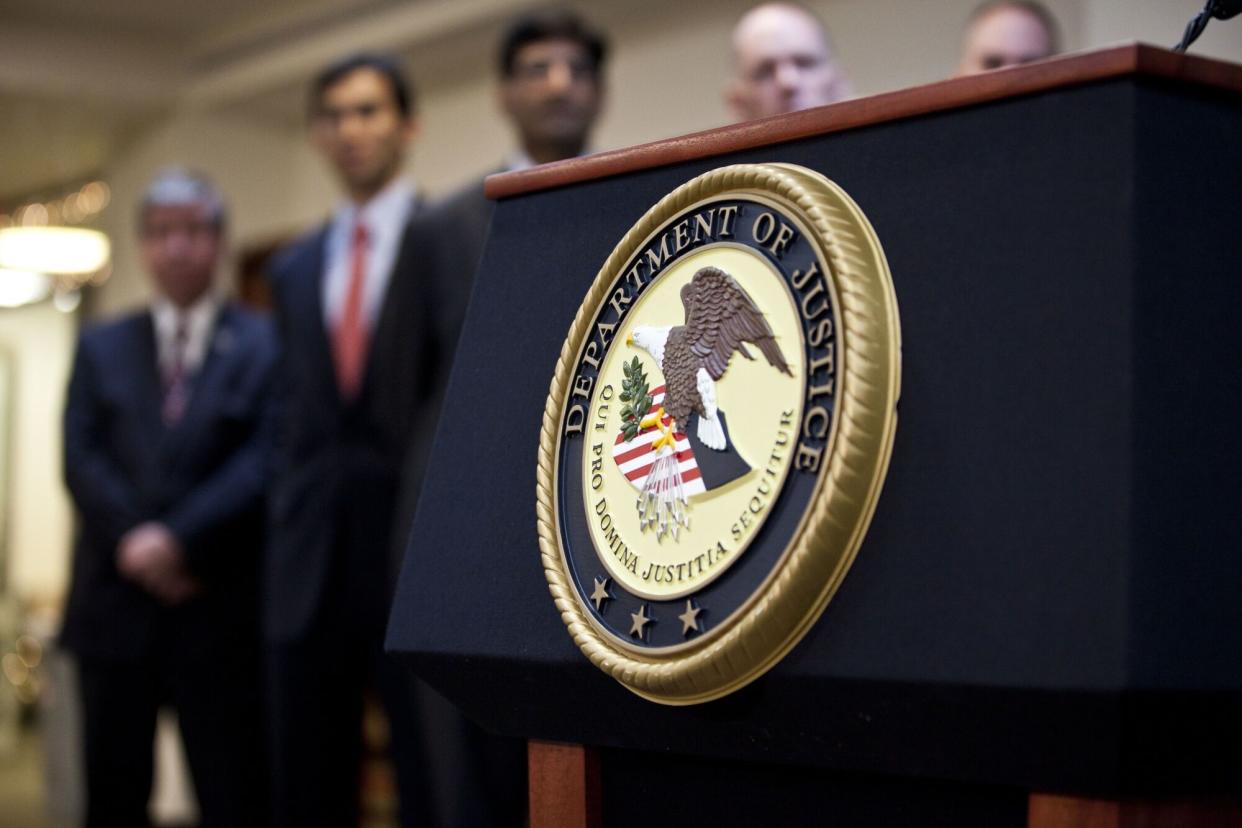US Funding Deal Delivers Blow to DOJ Antitrust Probes of Apple, Ticketmaster

(Bloomberg) -- A spending deal to keep the federal government operating through September would curb funding available to antitrust enforcers, potentially hindering high-profile investigations into Apple Inc. and Live Nation Entertainment Inc.’s Ticketmaster.
Most Read from Bloomberg
Tech Giants Drag Down US Stocks After Torrid Rally: Markets Wrap
Gold Climbs to Record on Mix of Fed Pivot and Geopolitical Risks
Bitcoin Retreats After Record-Setting Run That Topped $69,000
The measure, set to be voted on this week, would limit the Justice Department antitrust division’s ability to fund enforcement through corporate filing fees for mergers.
Congress passed a package of bills in December 2022 raising the fees, paid to the antitrust division and the Federal Trade Commission, which also plays a role in antitrust enforcement. The law aimed to inject additional funding to the antitrust agencies without the need for Congress to provide money from the Treasury.
Senator Amy Klobuchar, a Minnesota Democrat who sponsored the bill, assailed the antitrust funding level in the package, pointing out that the legislation to increase the fees passed on a bipartisan basis, 88-8.
“Diverting these fees is just wrong,” she said. The Justice Department “is going up against major monopolies with unlimited legal resources, and we must even the playing field for consumers and small businesses.”
Read More: Congress Unveils $436 Billion Plan to Fund Part of US Government
Mergers valued at more than $119.5 million must notify the federal antitrust authorities and wait at least 30 days before closing. The 2022 changes increased the size of the fees for the biggest mergers while lowering them for smaller deals.
The funding deal provides $233 million to the antitrust division for enforcement from fees collected from merging companies. While that figure is $8 million more than Congress provided in fiscal 2023, the amount is $45 million less than the $278 million that the Congressional Budget Office estimated the agency will collect in fees this year.
The antitrust division collected $55 million in fees in the first three months of the fiscal year, according to the White House Office of Management and Budget.
In previous budgets, any excess fees collected in one year would carry over into the next. But the proposed 2024 budget would prevent antitrust enforcers from accessing those fees in future years without additional legislation. A previous Senate version would have given the attorney general authority to submit a spending plan for any excess fees.
An explanatory statement accompanying the bill said it changed the language from a Senate version because “fee collections are inherently unpredictable and vary based on economic conditions and other factors.”
The budget crunch comes as the Justice Department is gearing up to sue Apple Inc. after a five-year investigation. A lawsuit is expected as soon as this month. The agency is also pursuing twin monopolization suits against Alphabet Inc.’s Google, inquiries into ticketing giant Ticketmaster and health insurer UnitedHealth Group Inc. and is set to review the proposed merger between Capital One Financial Corp. and Discover Financial Services.
“The army of lobbyists and lawyers representing Wall Street and Big Tech is doing cartwheels about potential funding cuts for antitrust enforcement by the Justice Department,” said Senator Elizabeth Warren, a Massachusetts Democrat. “It’s powerfully important that lawmakers immediately address this self-inflicted wound.”
Appropriators were squeezed by a budget cap agreement which required overall domestic funding outside of veterans health care to be cut. That led to a trimming of some agencies including the FBI operating budget.
The Biden administration has made stepped-up antitrust enforcement a focus of its economic policy, appointing aggressive regulators to top posts and issuing an executive order in 2021 to encourage competition across industries.
On Tuesday, President Joe Biden is set to lead a meeting of the Competition Council — a group of cabinet officials and top aides assembled to ease the grip of corporate consolidation in key industries — at the White House.
--With assistance from Erik Wasson.
(Updates with comment from Klobuchar in fourth paragraph. An earlier version corrected data on fee collection in the current fiscal year.)
Most Read from Bloomberg Businessweek
Humanoid Robots at Amazon Provide Glimpse of an Automated Workplace
Immigration Rage Drowns Out the US Labor Market’s Need for Workers
The Monaco Royals Whose Deals Have Brought Peril to the Palace Doors
©2024 Bloomberg L.P.


